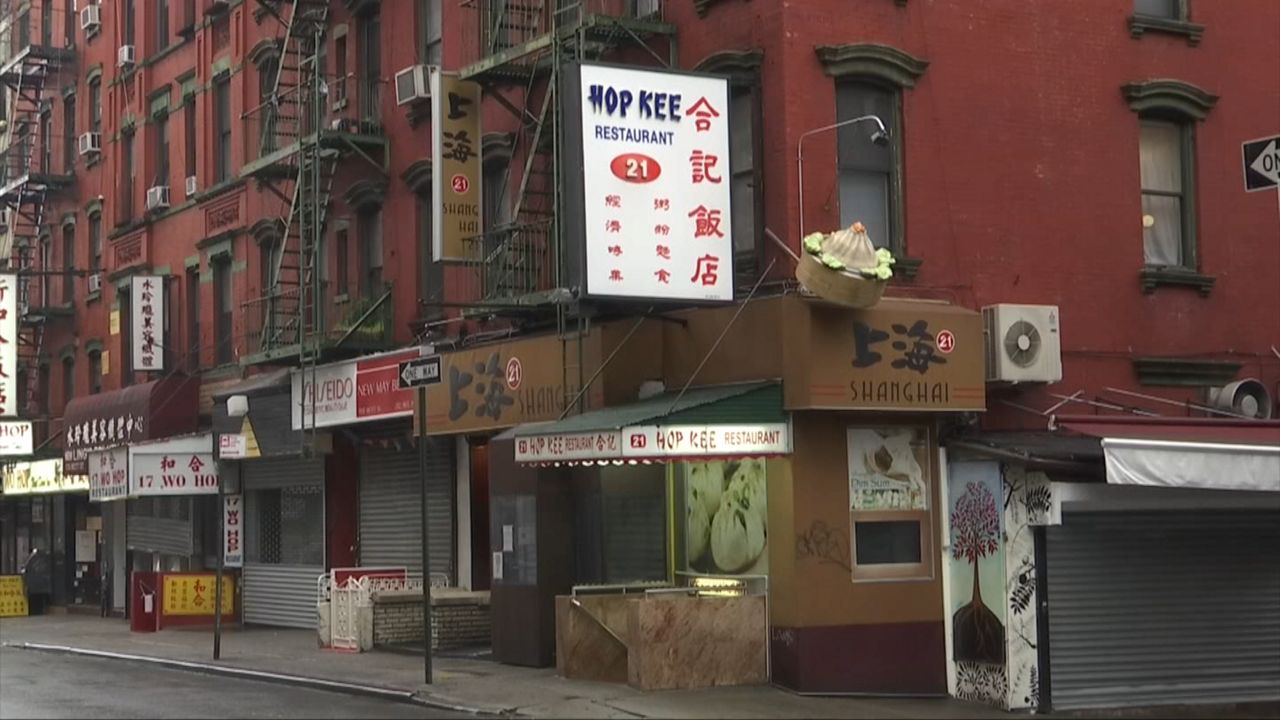The call to cancel rent for up to 90 days is all over social media and being pushed by progressive politicians at the city, state and federal level.
Building owners, however, say while their tenants need relief, it should not come at their expense. Many want a federal rent voucher for tenants that would at least allow them to pay their mortgage and property taxes, which, in turn, helps keep the government running.
Jan Lee runs his family's two apartment buildings.
"It's two buildings in Mott Street in Chinatown. They've been in our family since 1924," he said,
All 22 units in the two walkups are rent stabilized, and most of their tenants were able to pay rent in April, but two of the three commercial tenants could not.
"May is going to be really telling, both for our residential tenants and our commercial tenants," Lee said.
He fears their savings might be depleted and they won't be able to pay rent as his expenses pile up, like the water bill and property taxes, which are due in July.
Stephanie Kirnon also has to worry about paying her building's mortgage.
"It’s a matter of juggling the funds," Kirnon told NY1 last year.
She's often flexible with some of her residents who have been unable to pay the rent, but now, most of her tenants missed rent in April. All of the 26 apartments are either rent stabilized or rent controlled.
She says as a result of the lack of rental income in April, she won't have the cash to repair a leaky roof, unless her bank is flexible on the mortgage.
Jay Martin, who heads the Community Housing Improvement Program, or CHIP, a trade group of building owners, says some banks are allowing owners to defer mortgage payments without interest, but not all of them.
"We need the government, specifically the federal government, to provide subsidies directly to renters so that those who can't pay can pay their rents so that we can continue to pay our property taxes, our maintenance costs, our mortgage payments, etc.," Martin said.
He fears this could turn into a housing crisis if the pandemic drags on, the economy limps along and small landlords do not get relief. In a worst-case scenario, some could face foreclosure, losing their buildings to the city or to their banks.
In addition, Martin said that even when people can return to work, "there still will probably be a several weeks to month lag between people being unemployed and people being able to pay their rents."
"We don't know if people are going to comfortable be shopping and eating and being in Chinatown," Lee said.
He worries Chinatown's recovery will be even slower. Stores here began hurting in January over fears of the coronavirus in China. It's so quiet now, Monday's light rain was all you could hear for a time.
Lee, Neighbors United Below Canal and other civic organizations want water bills put on hold and the July 1 real estate tax deadline extended, and Albany and Washington to cover whatever rent COVID-19-impacted residential tenants are unable to pay.
"A residential landlord would get 100% of the rent," Lee said. "What that does is, it enables us to pay our real estate tax, which then keeps this economic engine moving."
That, they say, would help the city to maintain services. Nearly one third of the municipal budget comes from property taxes.



